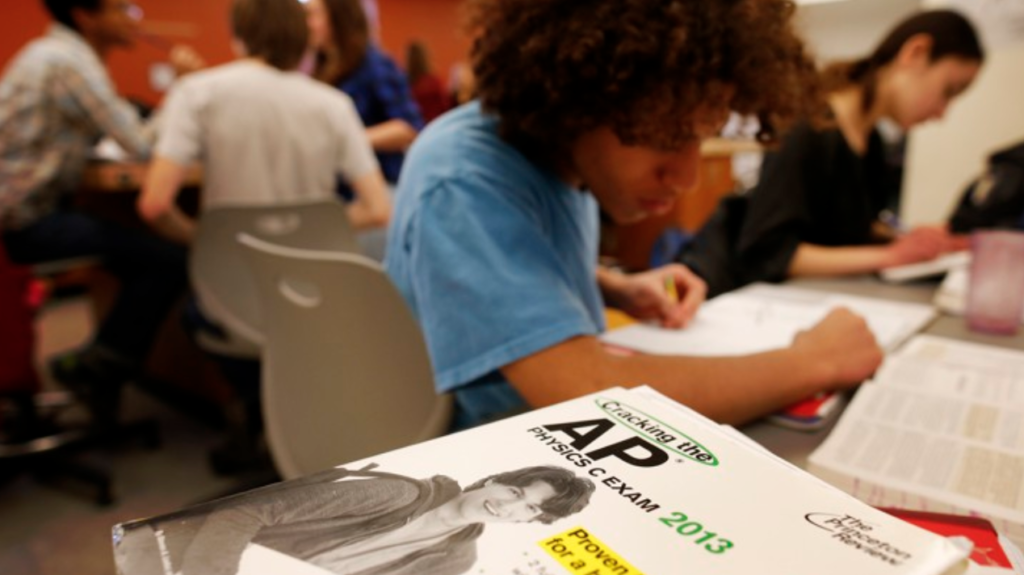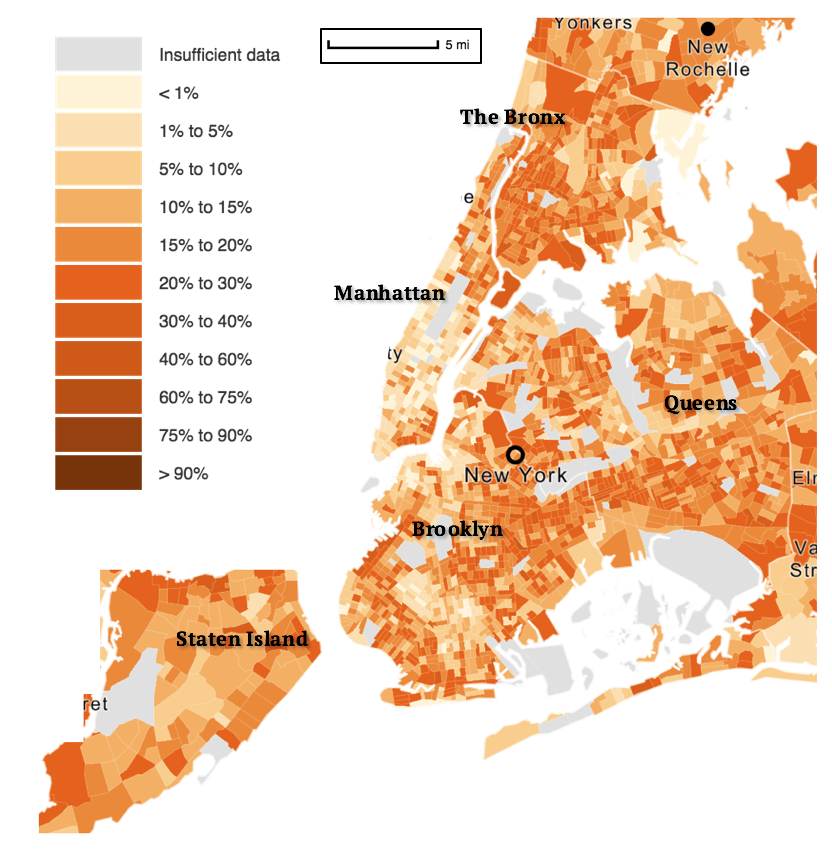
Academic Tracking is a term coined to describe the process of grouping and separating students based on academic ability for all subjects, classes or curriculum. Through academic tracking, students attend classes only with others of the same overall academic achievement. Proponents of academic tracking argue that “ability grouping”, a euphemism used to describe the practice by the Department of Education, allows for students to learn at their own pace. However, it is evident that whether known as academic tracking, streaming, sorting, or ability grouping, the practice represents a form of racial and socioeconomic segregation. On our website, we explore academic tracking and the factors that go into influencing the practice across four boroughs of New York City: The Bronx, Brooklyn, Manhattan, and Queens.
Population of Students Enrolled in Public High Schools Across New York City

Why Does it Matter?
Tracking attempts to ensure that students in low and normal achievement levels learn material at their own pace without falling behind. However, in regard to scholastic achievement, while is may benefit “above-average” achieving students, by allowing them to learn much more quickly and to challenge their ability, tracking has not been found to make a significant difference in decreasing the achievement gap.
While academic tracking systems may have potential benefits, there are also a few drawbacks we must consider. For example, it is not unusual for tracking systems to promote segregation within the school system. Evidence shows that many low-track classes are comprised majority of minority and low-income students, whereas classes in the upper tracks are dominated by students of higher socioeconomic status. “Industrial Schooling” is a term coined in the 1986, by author Jeannie Oakes, in which she suggested that students of higher-income and class received more educational opportunities, while lower-income students were exposes to limited educational opportunities and tracked into vocational programs.
Who Should Care?
It is important to understand both the advantages and disadvantages of schooling as it has a direct effect on students. Academic tracking can cause students to self-label themselves as inferior to those of higher track students. This can lead to lower self-esteem and ultimately reduced academic performance. It becomes more of an issue when we understand the unfair self-esteem trap that is specifically experienced by minority students who have to contend with negative ability stereotypes. Parents should especially consider the issues of academic tracking to determine its benefits and whether it is a good choice for their child.